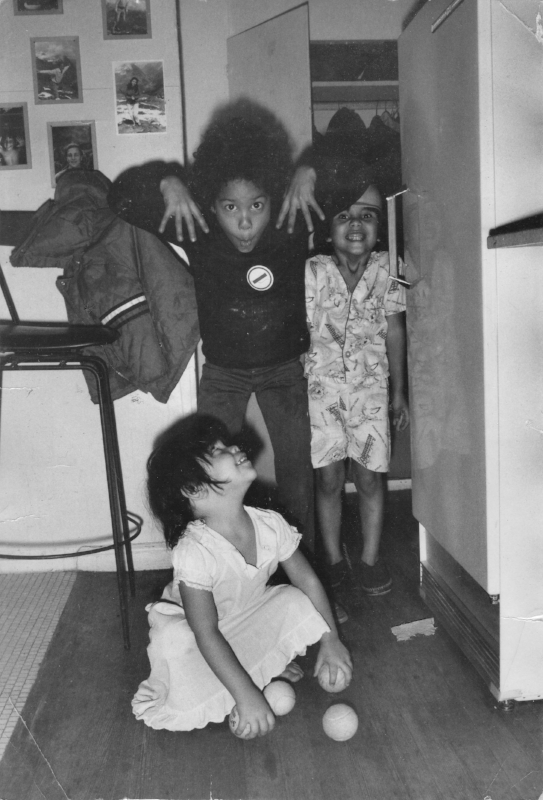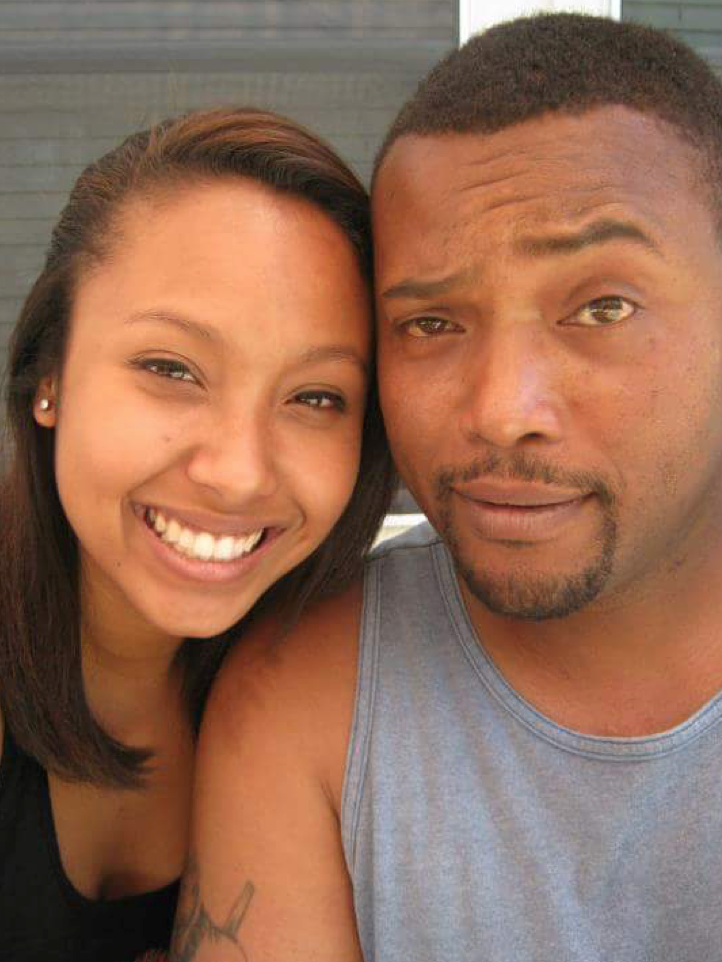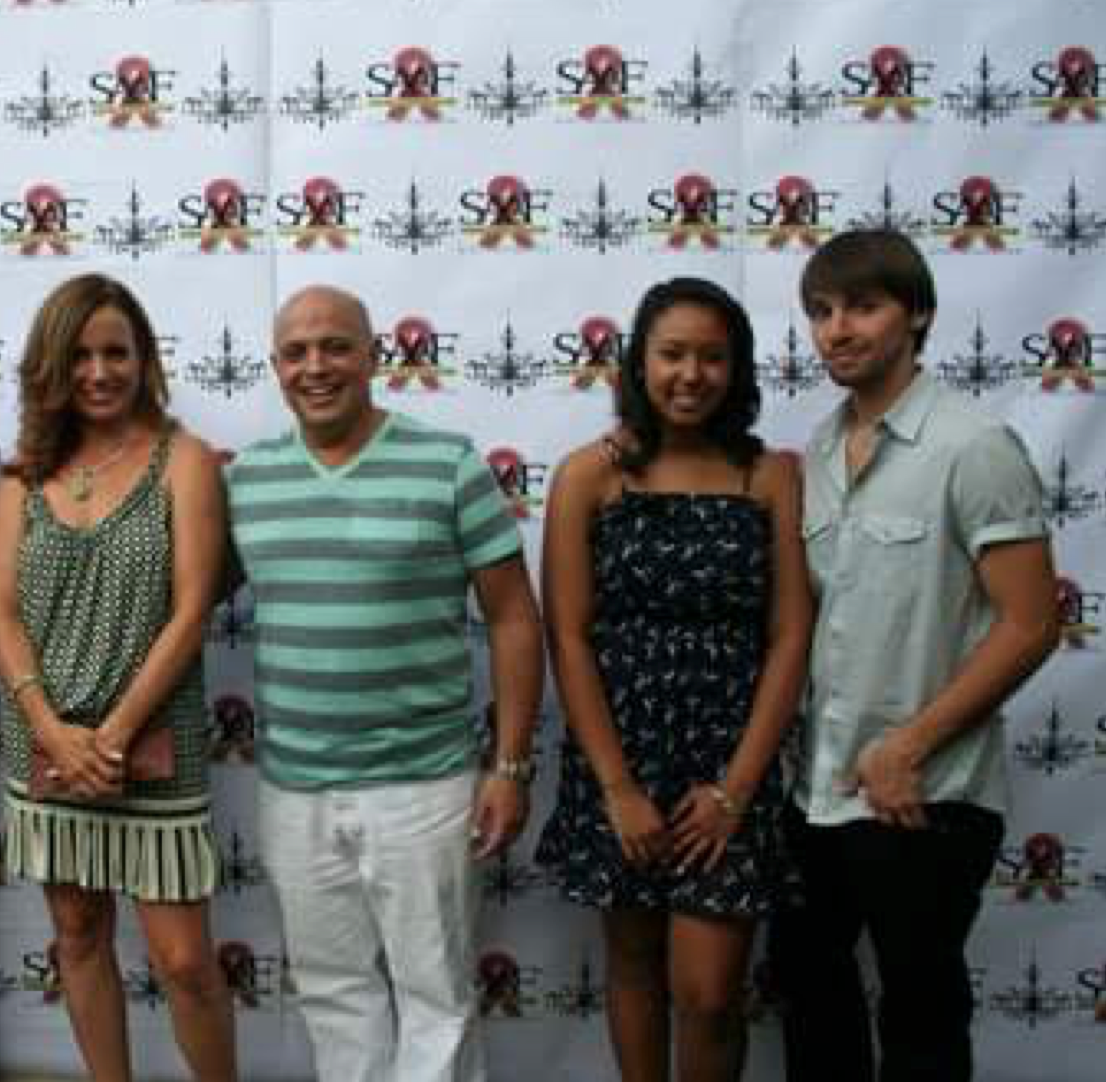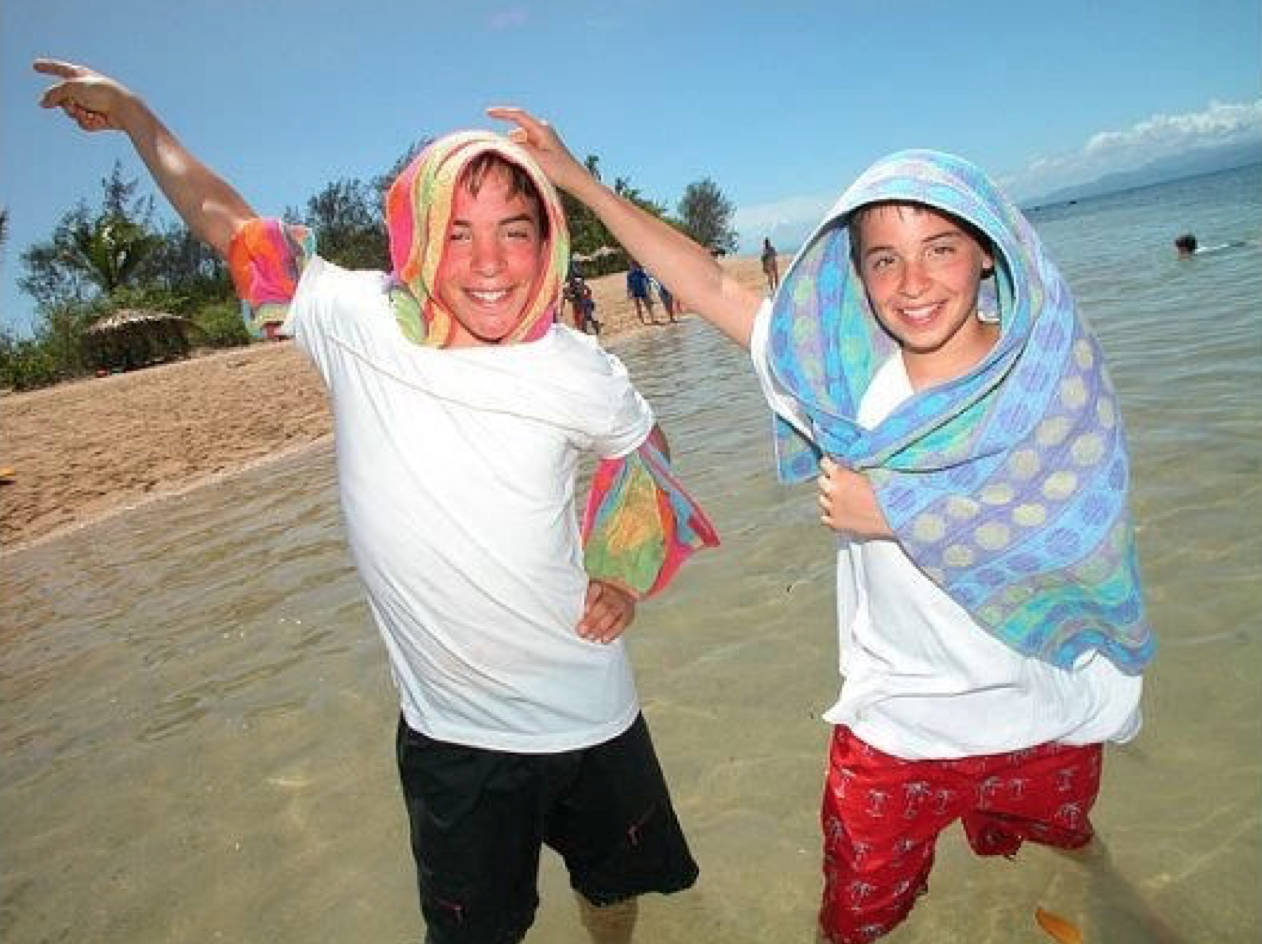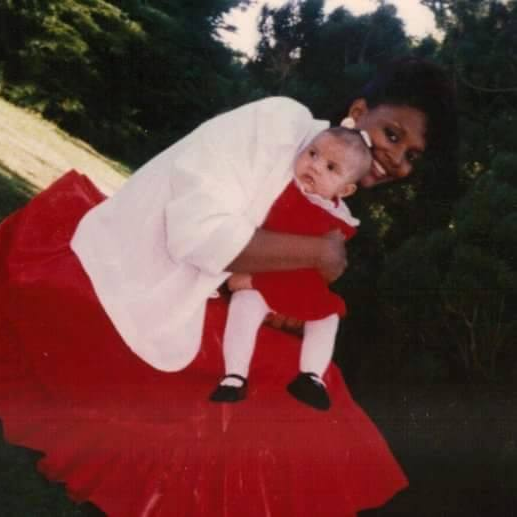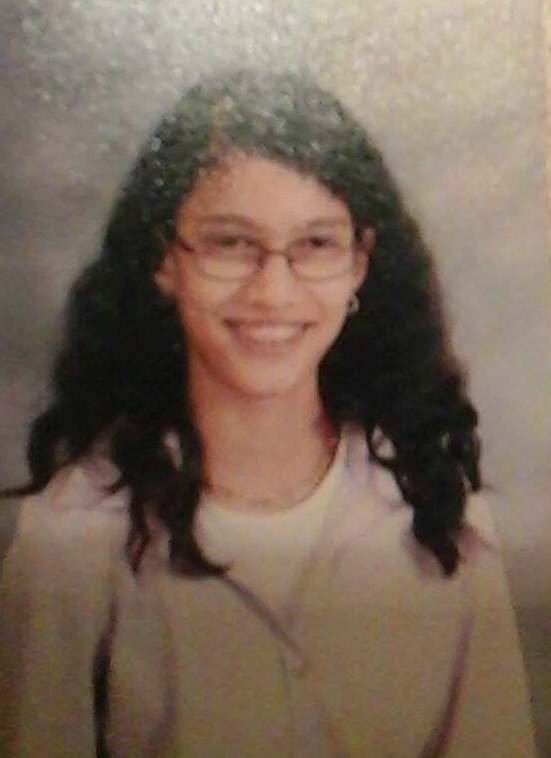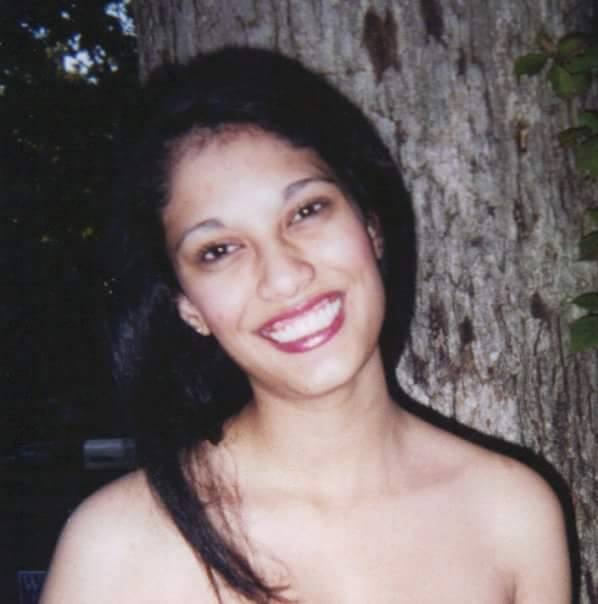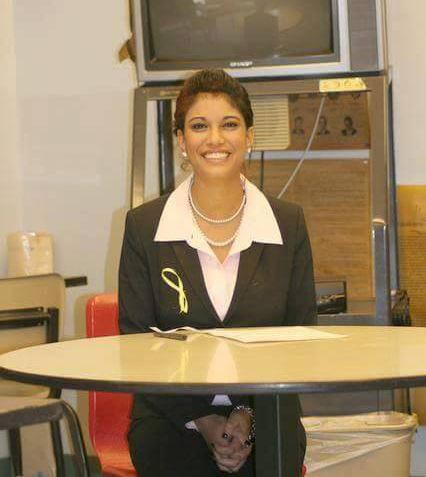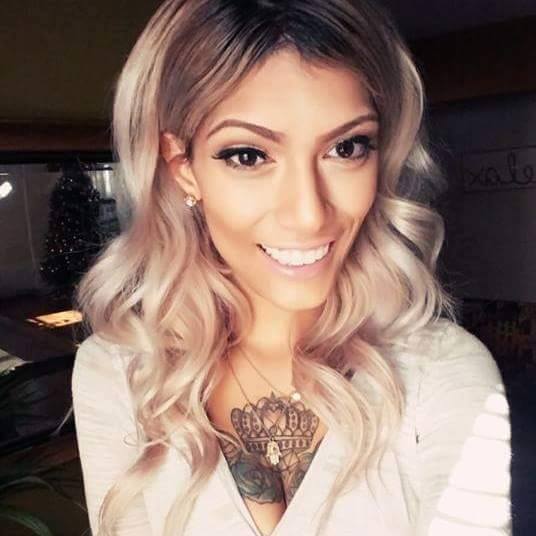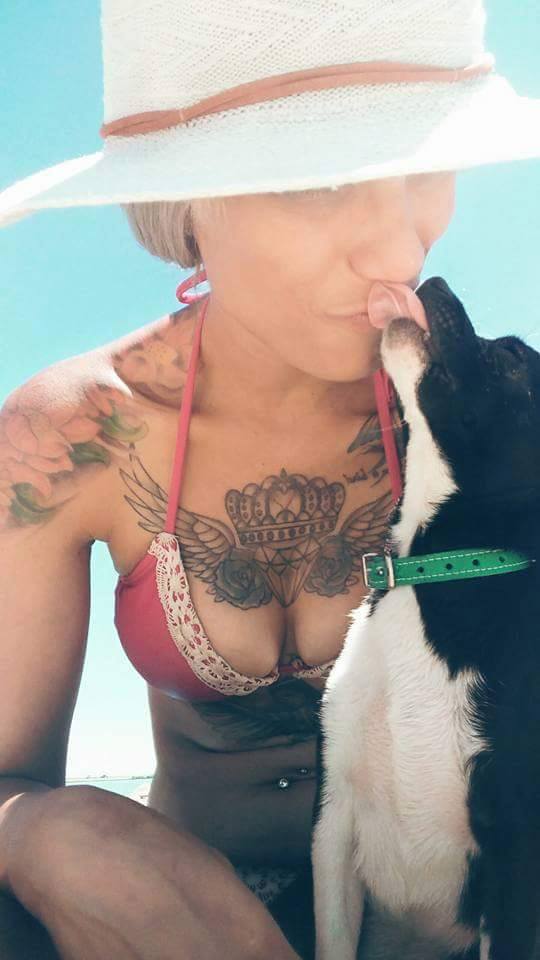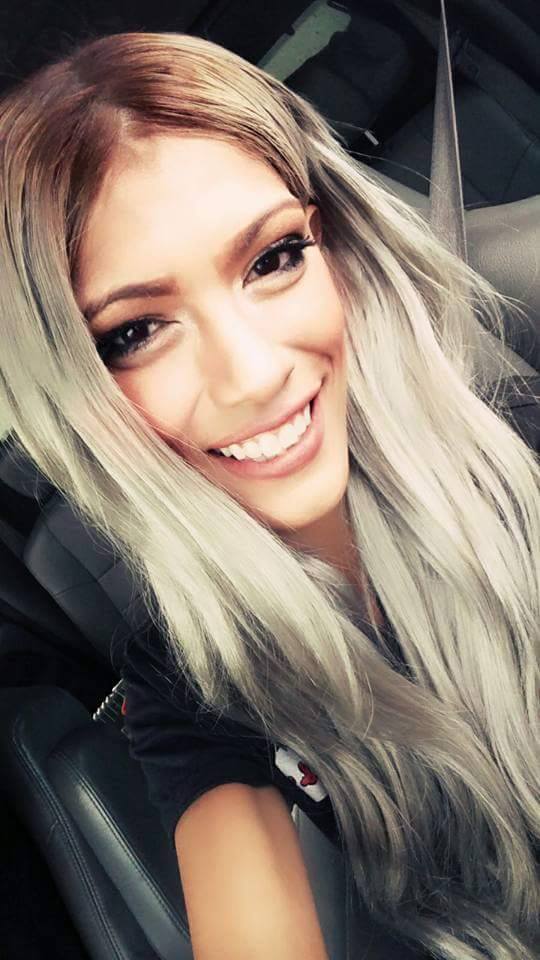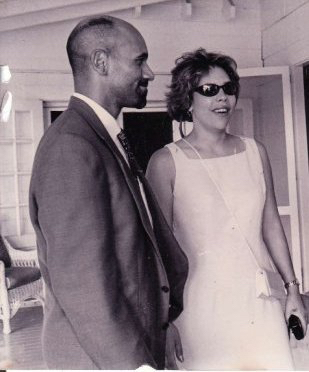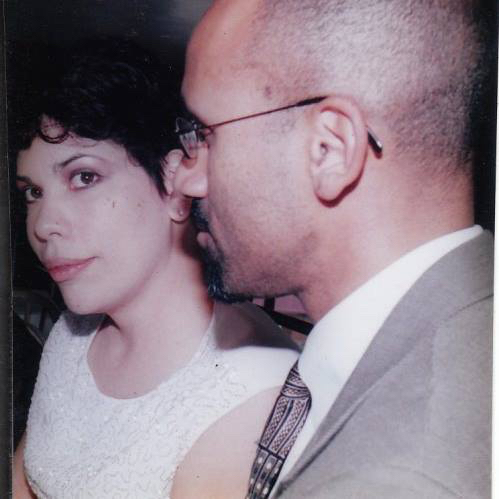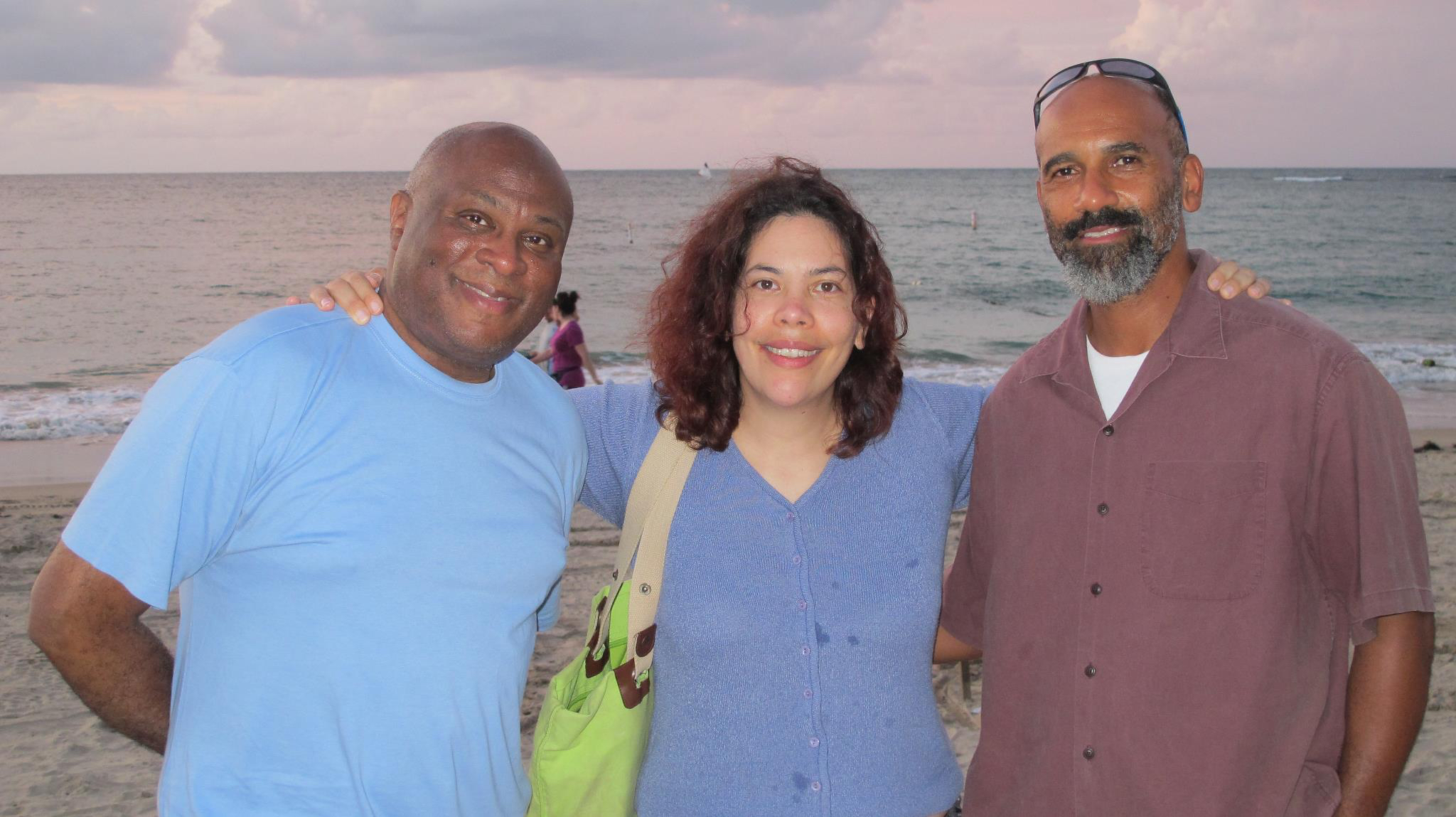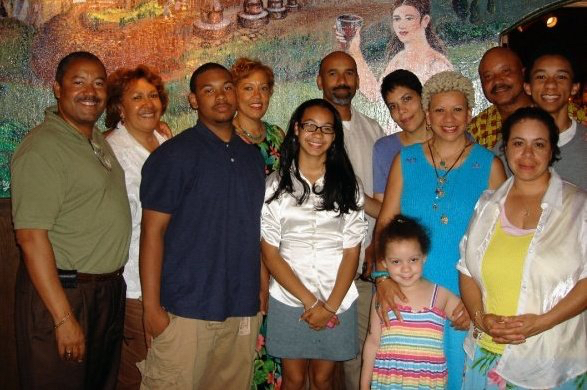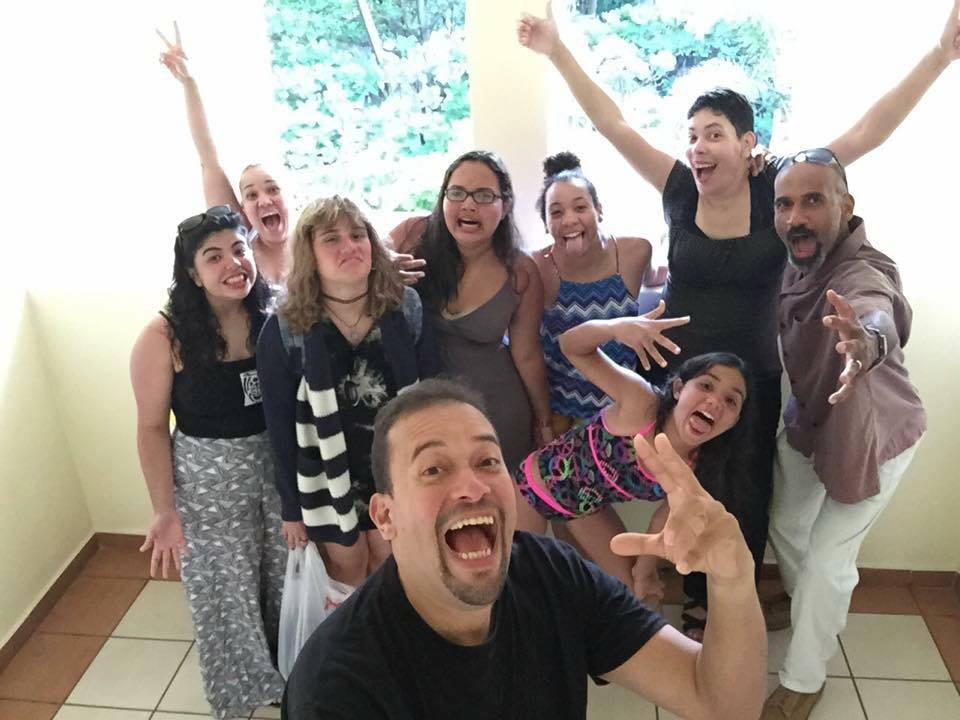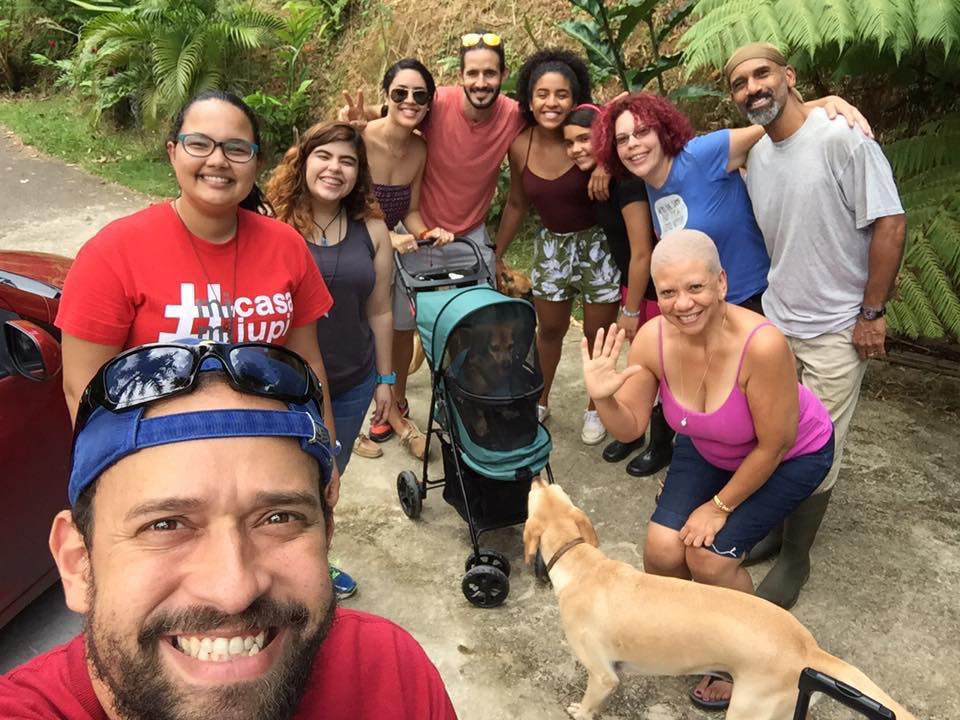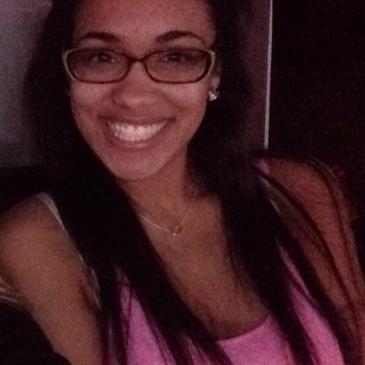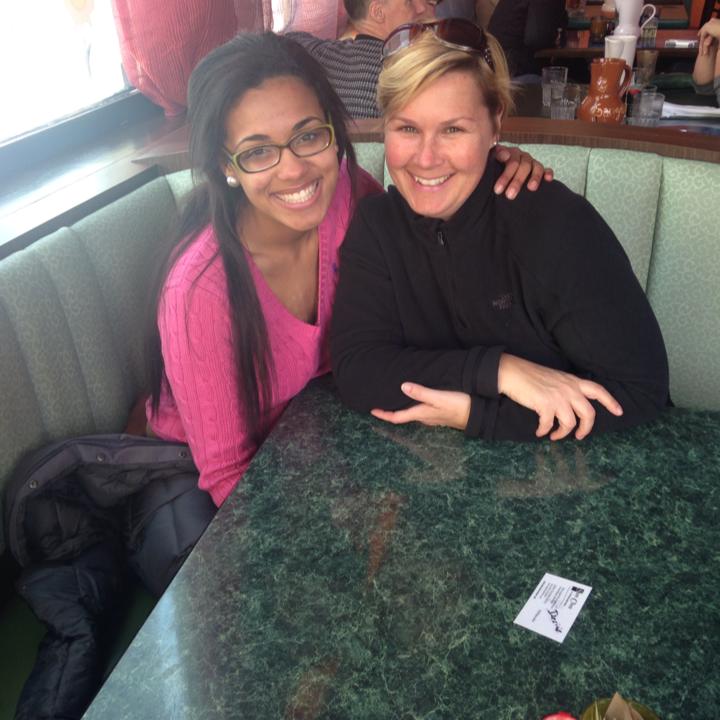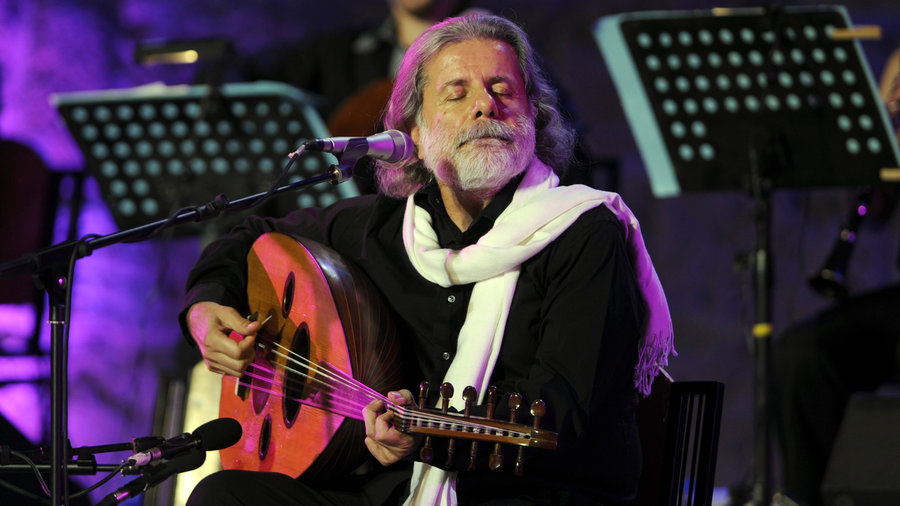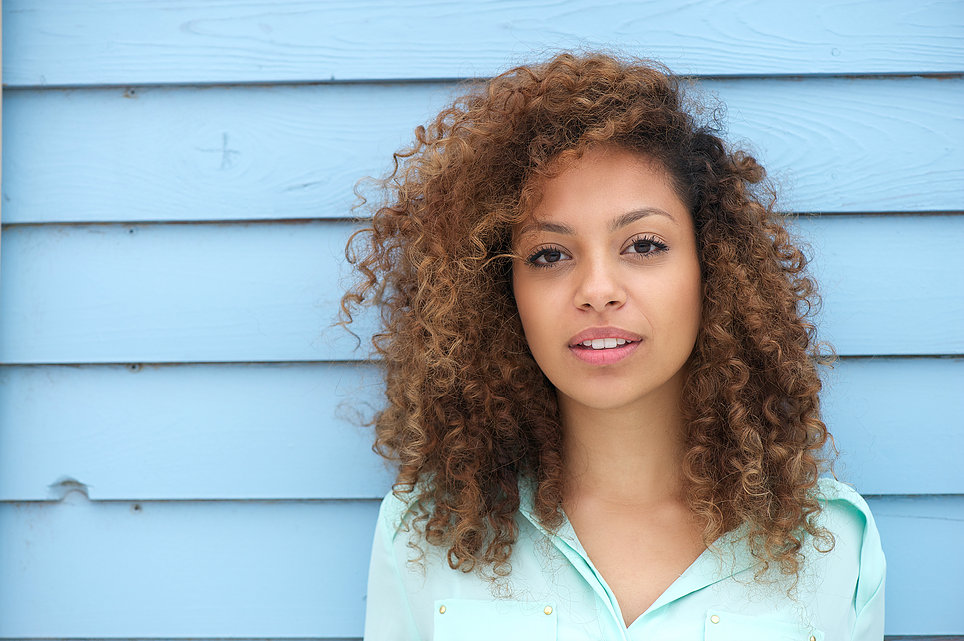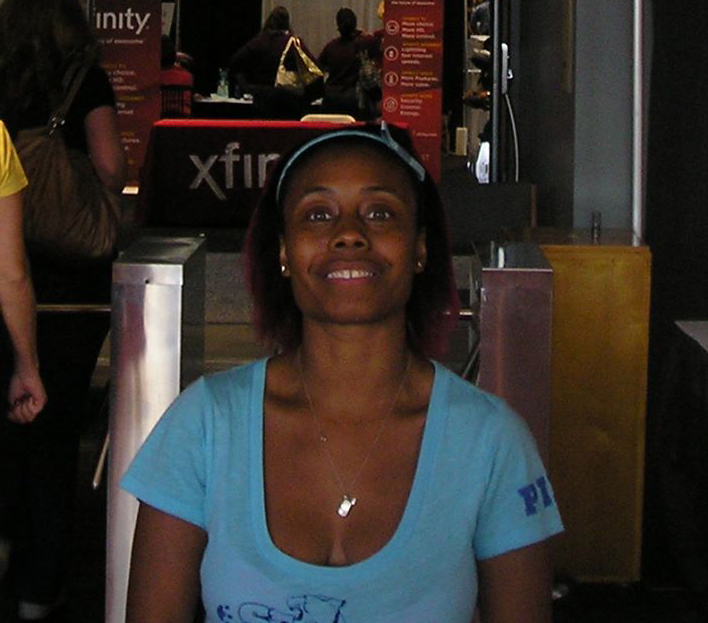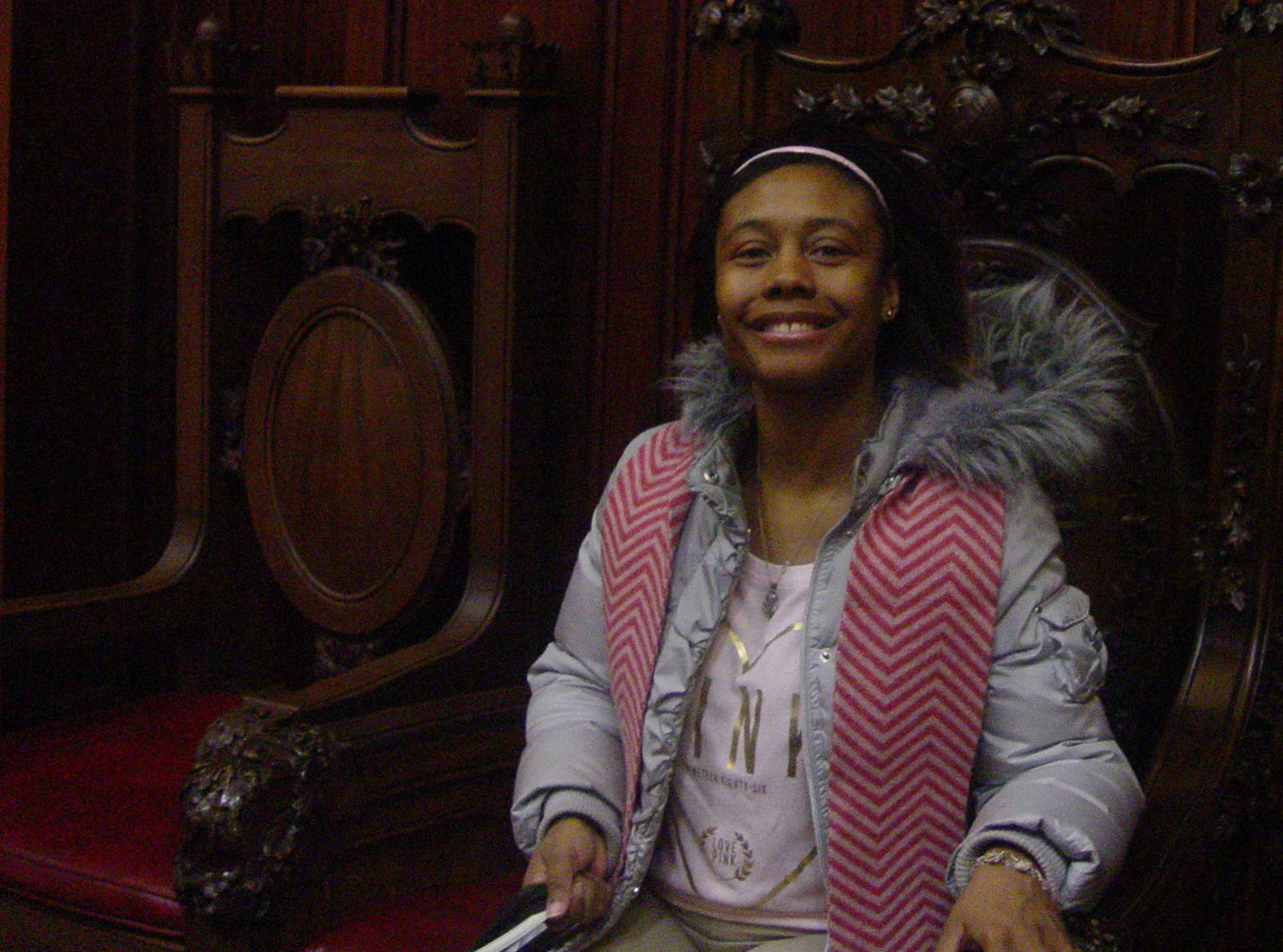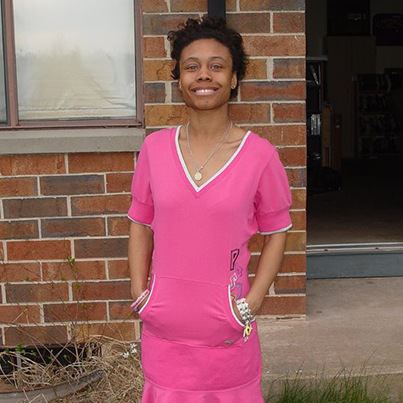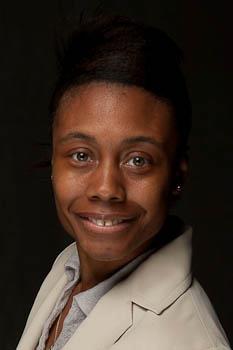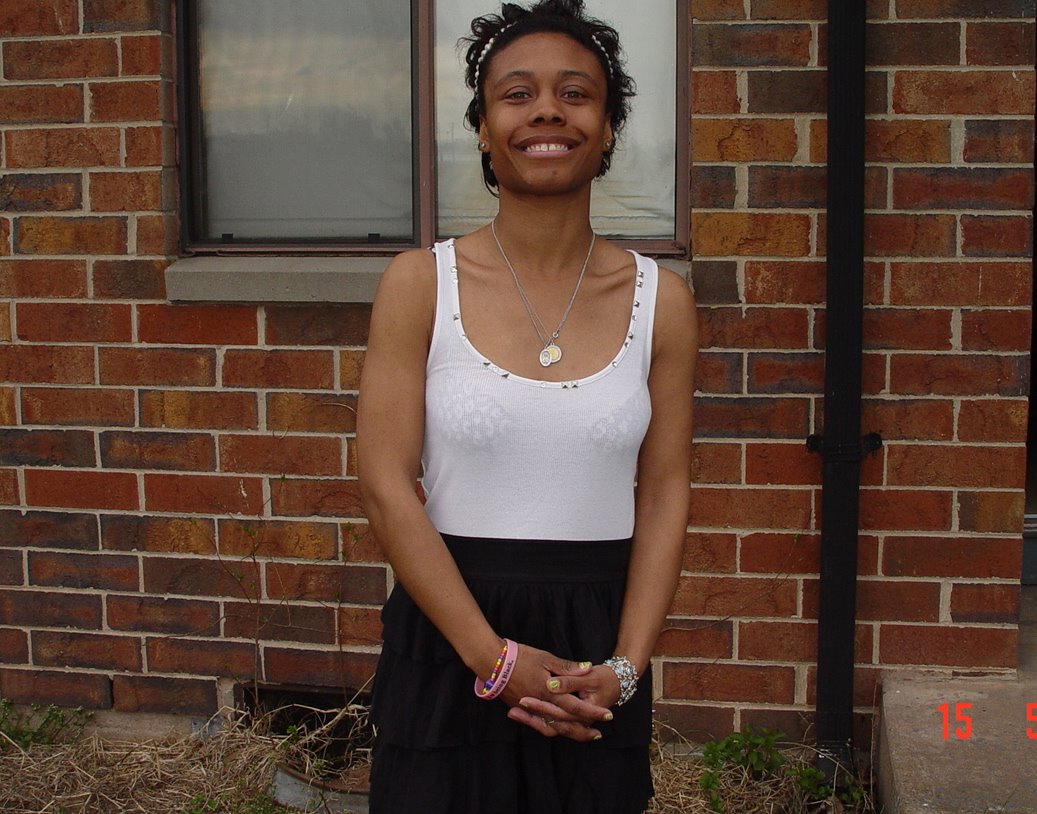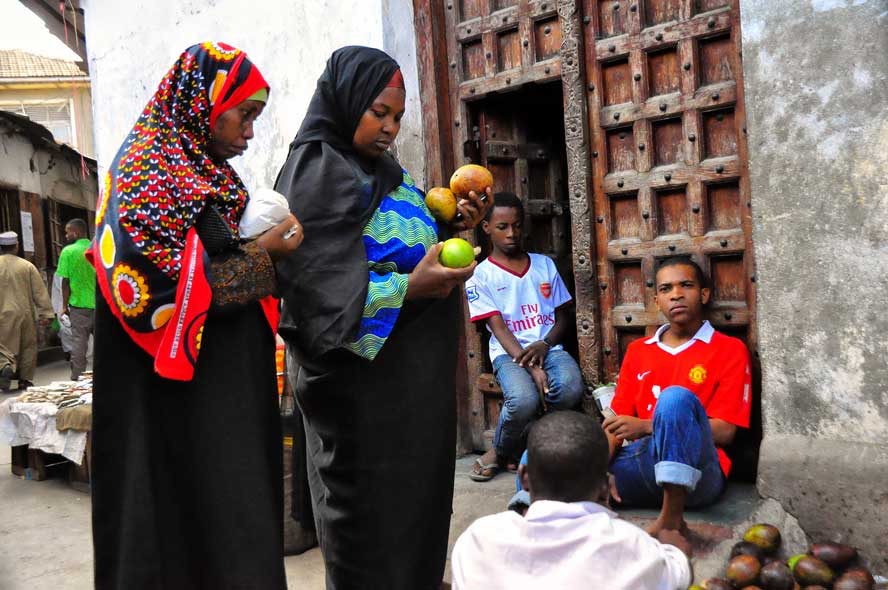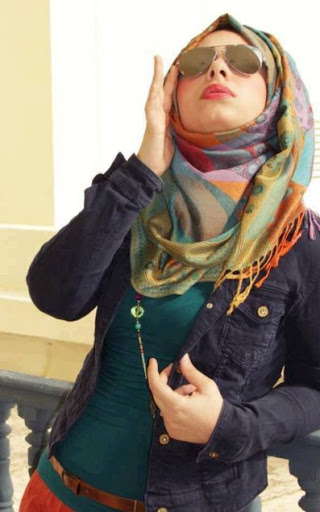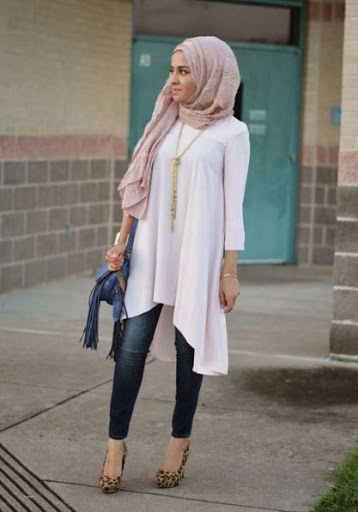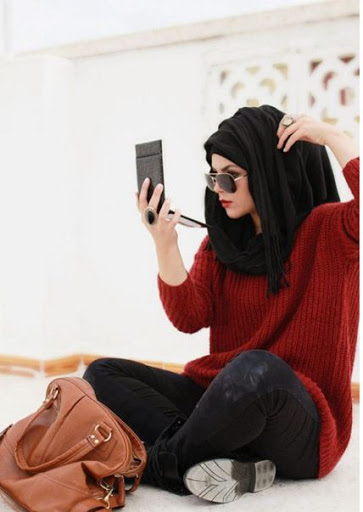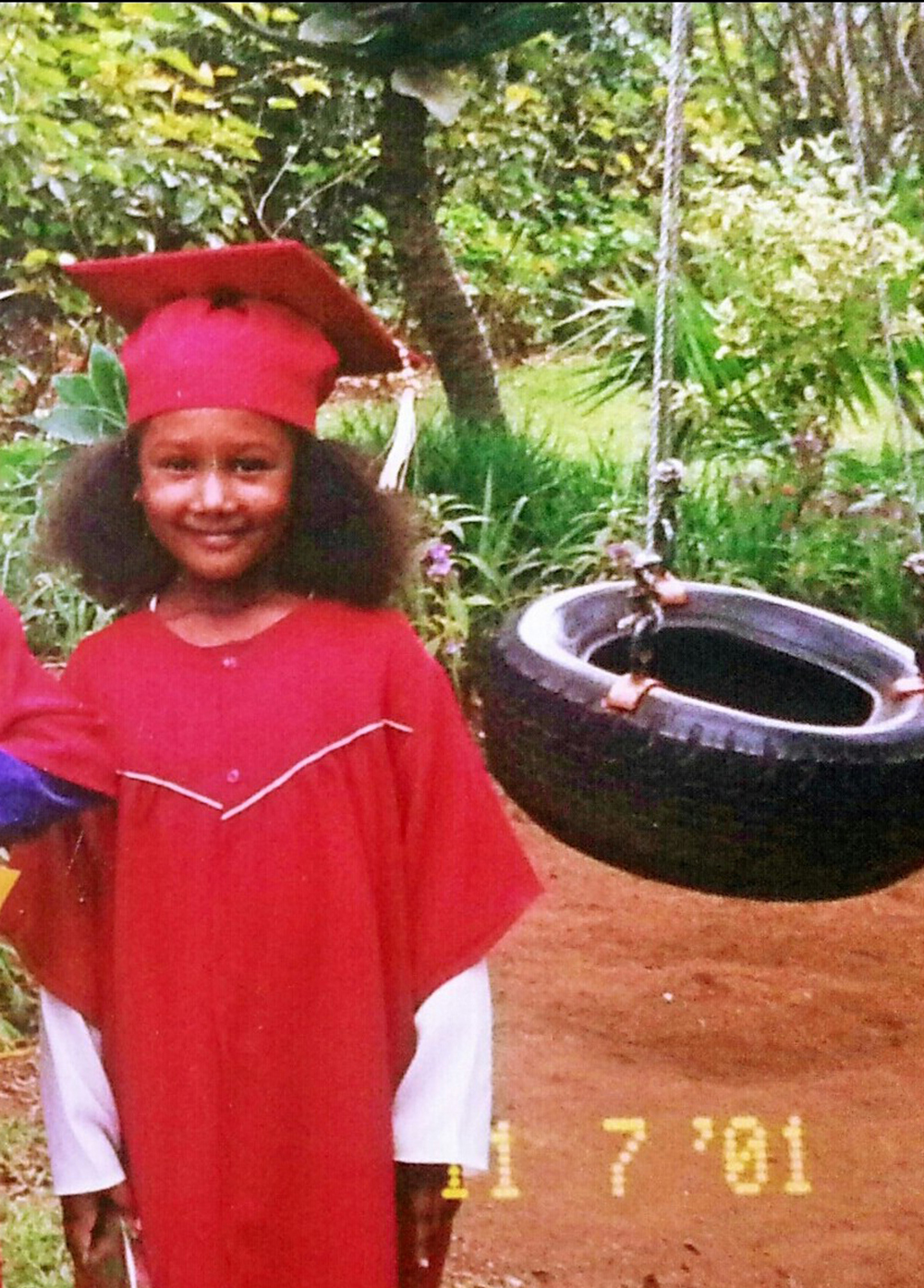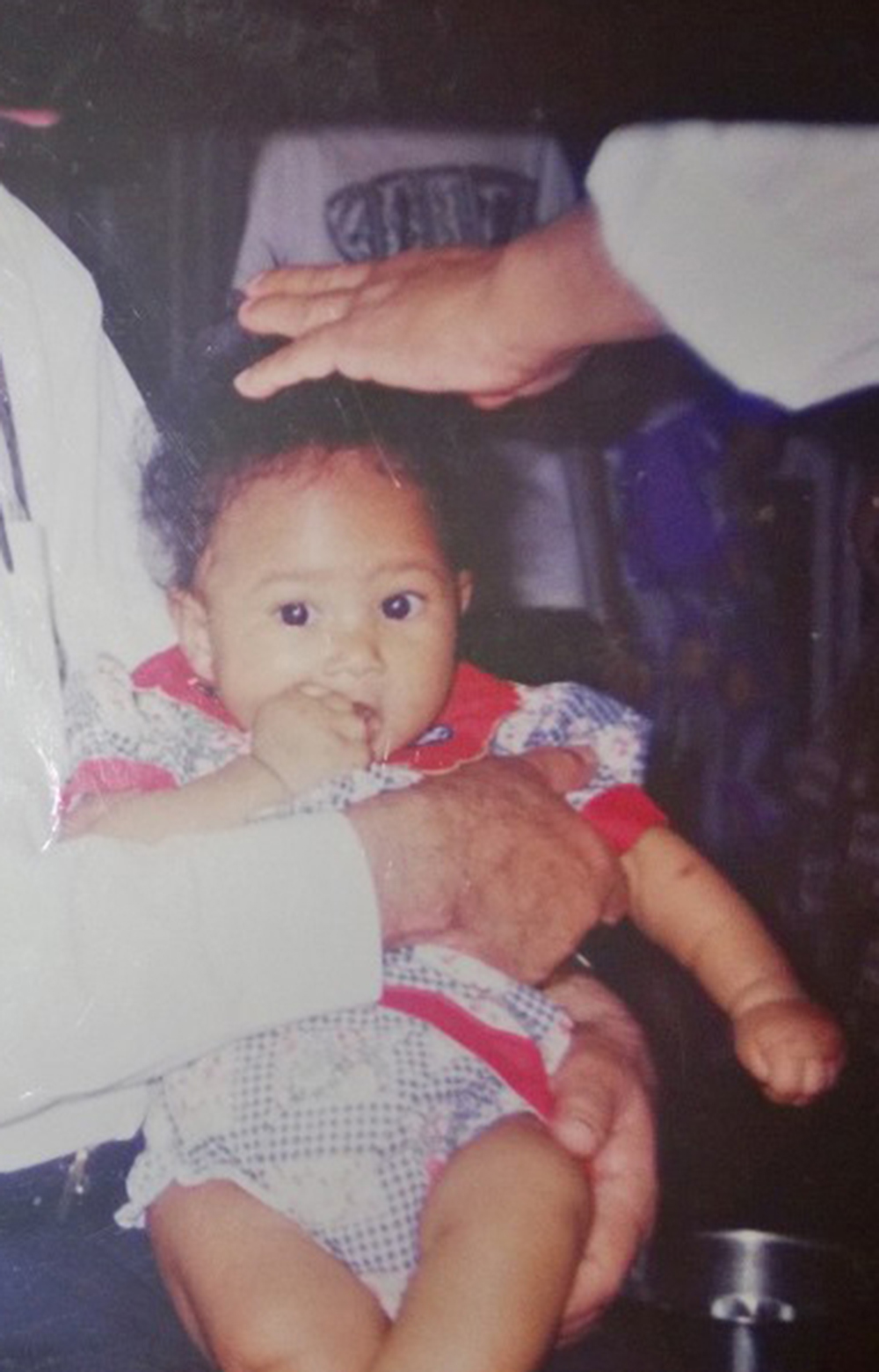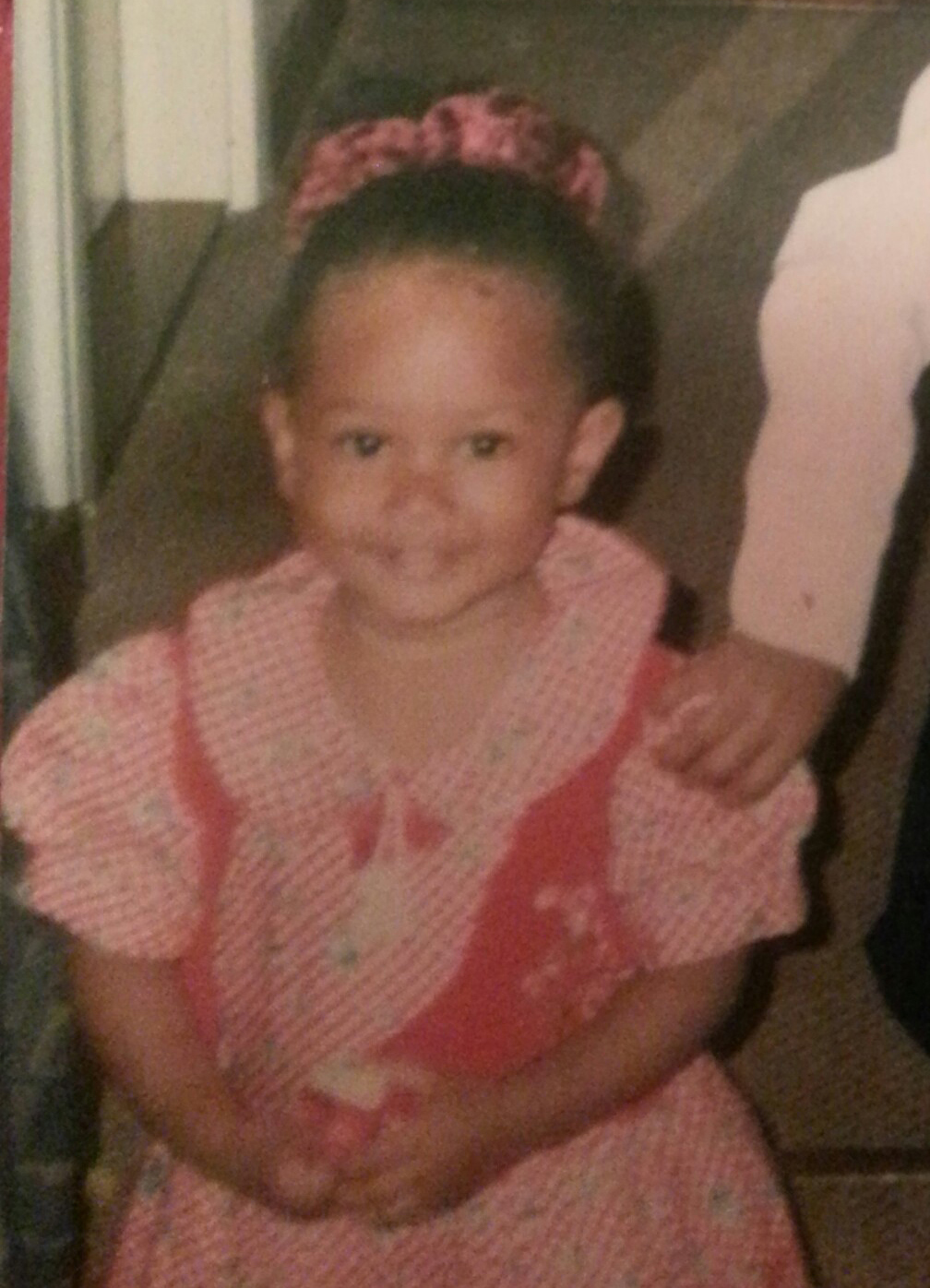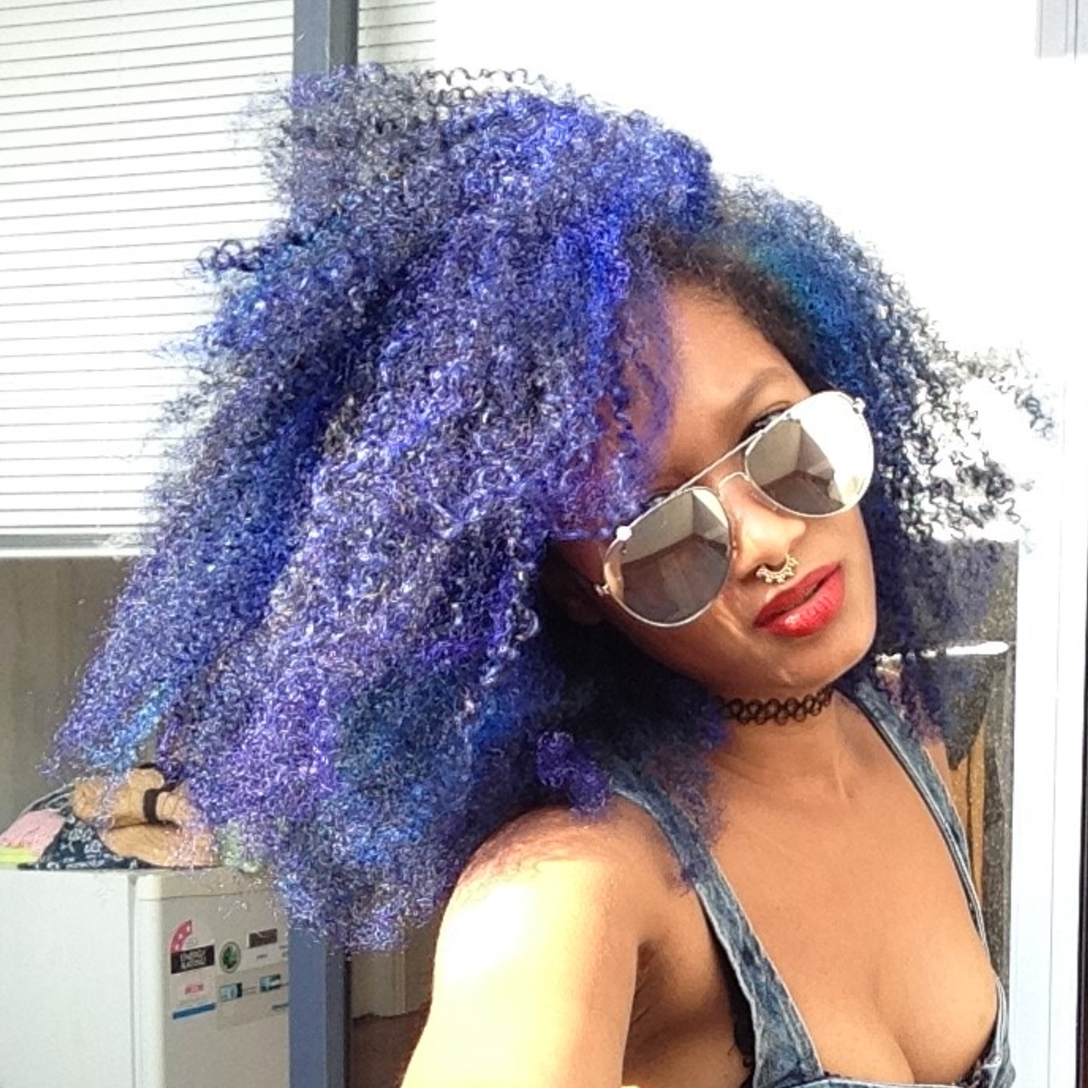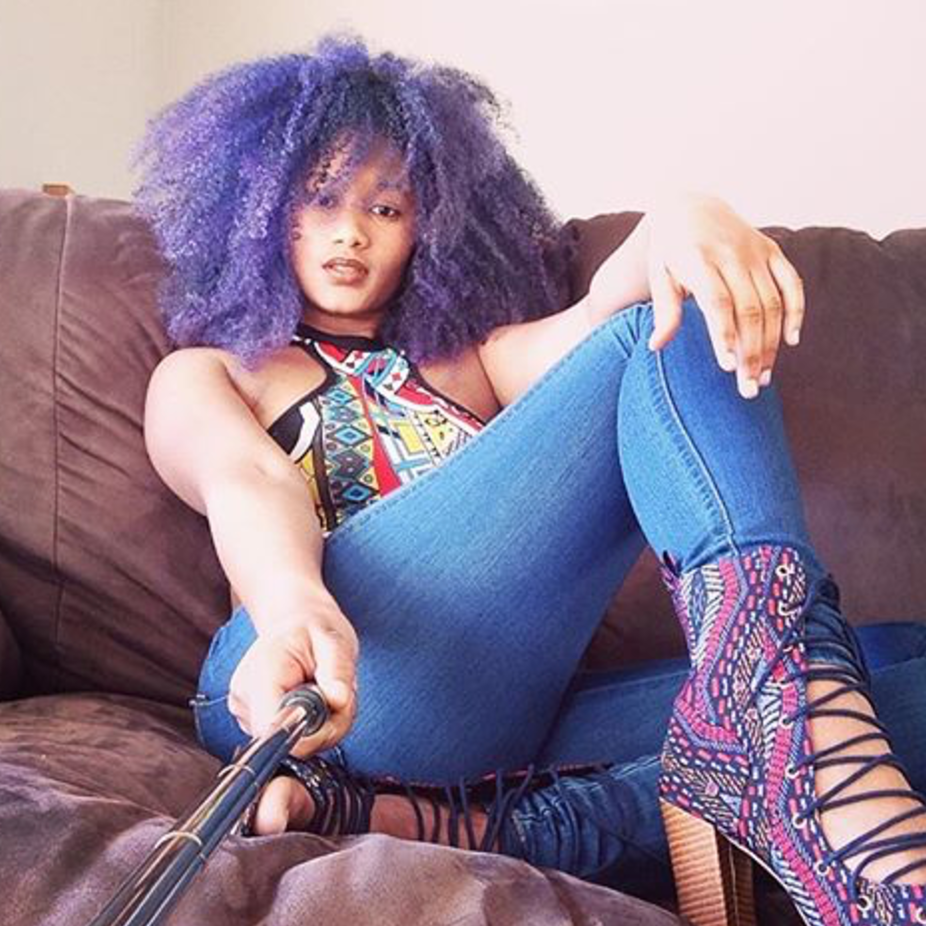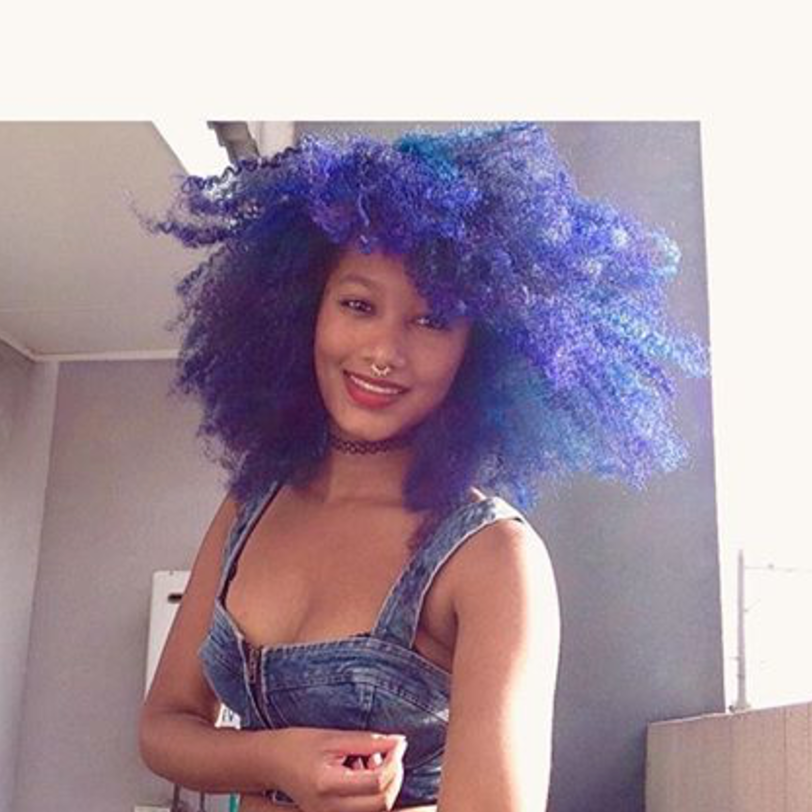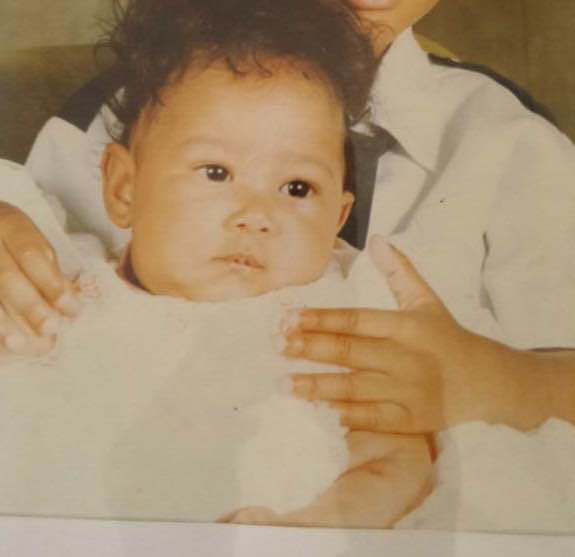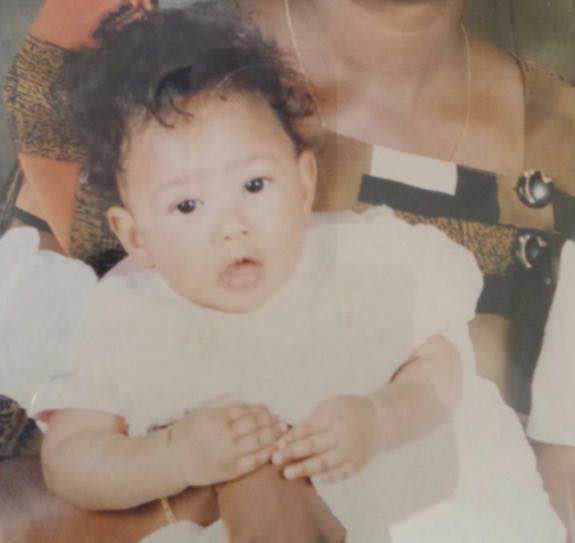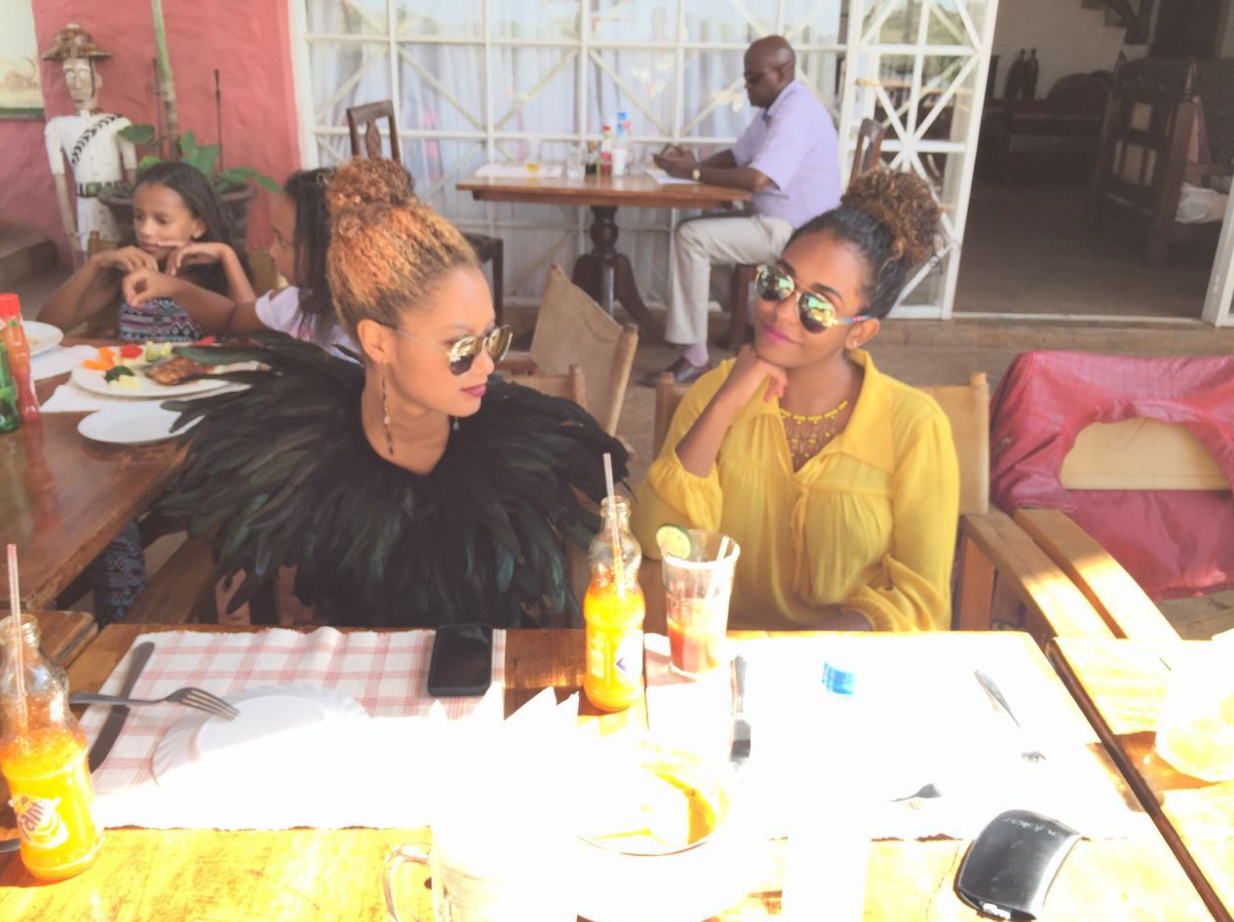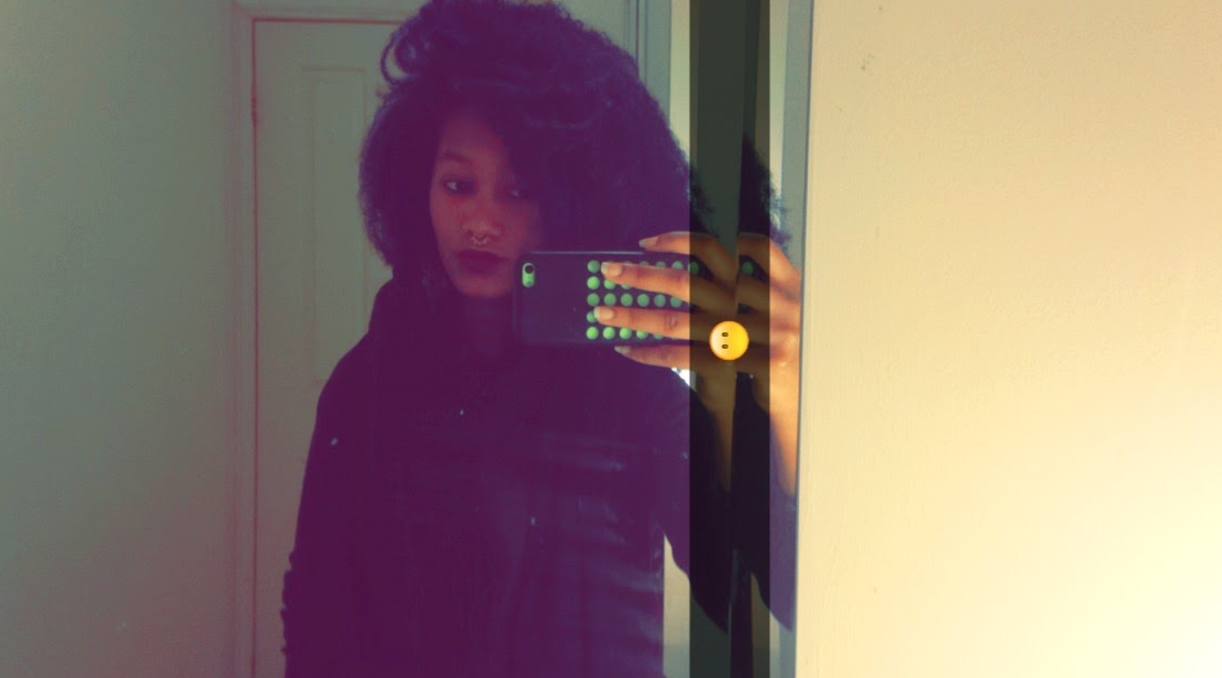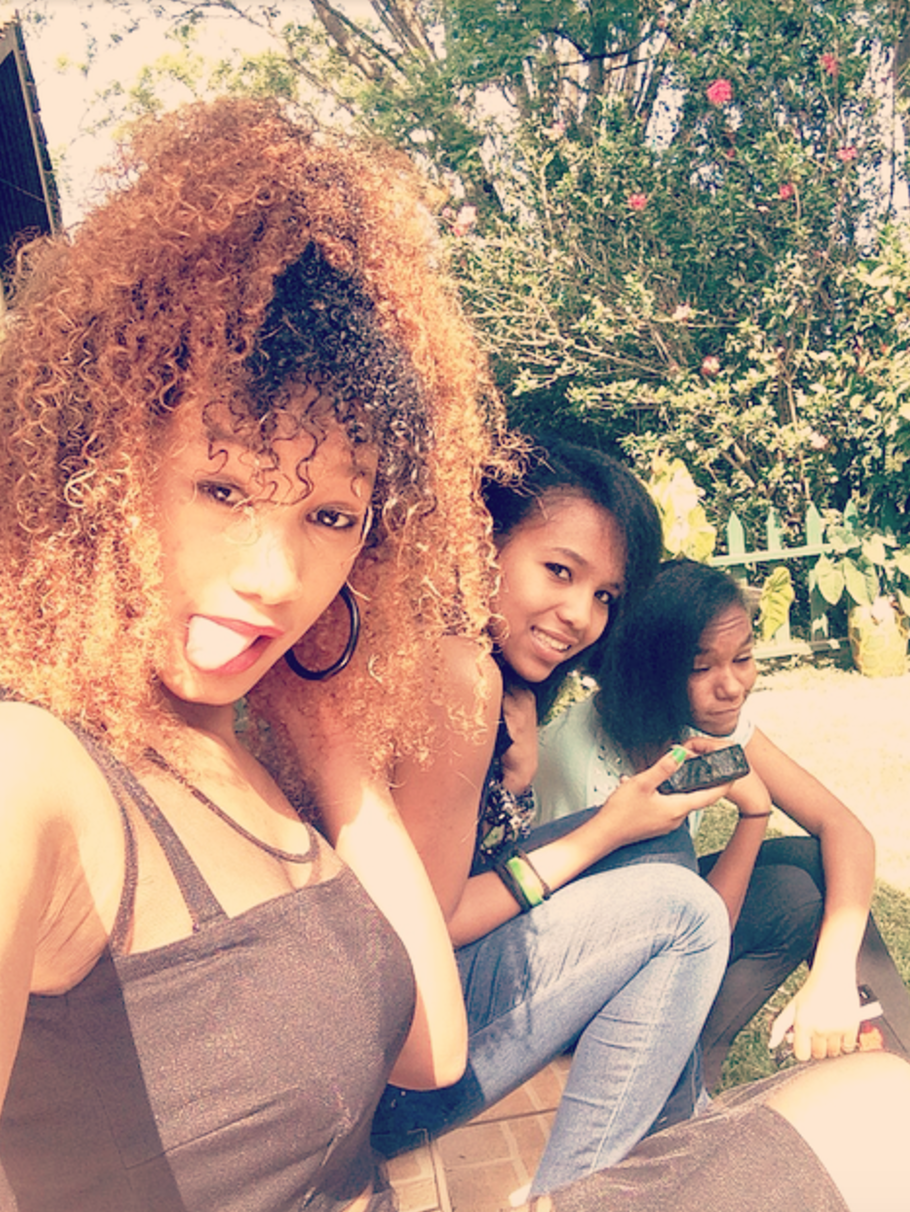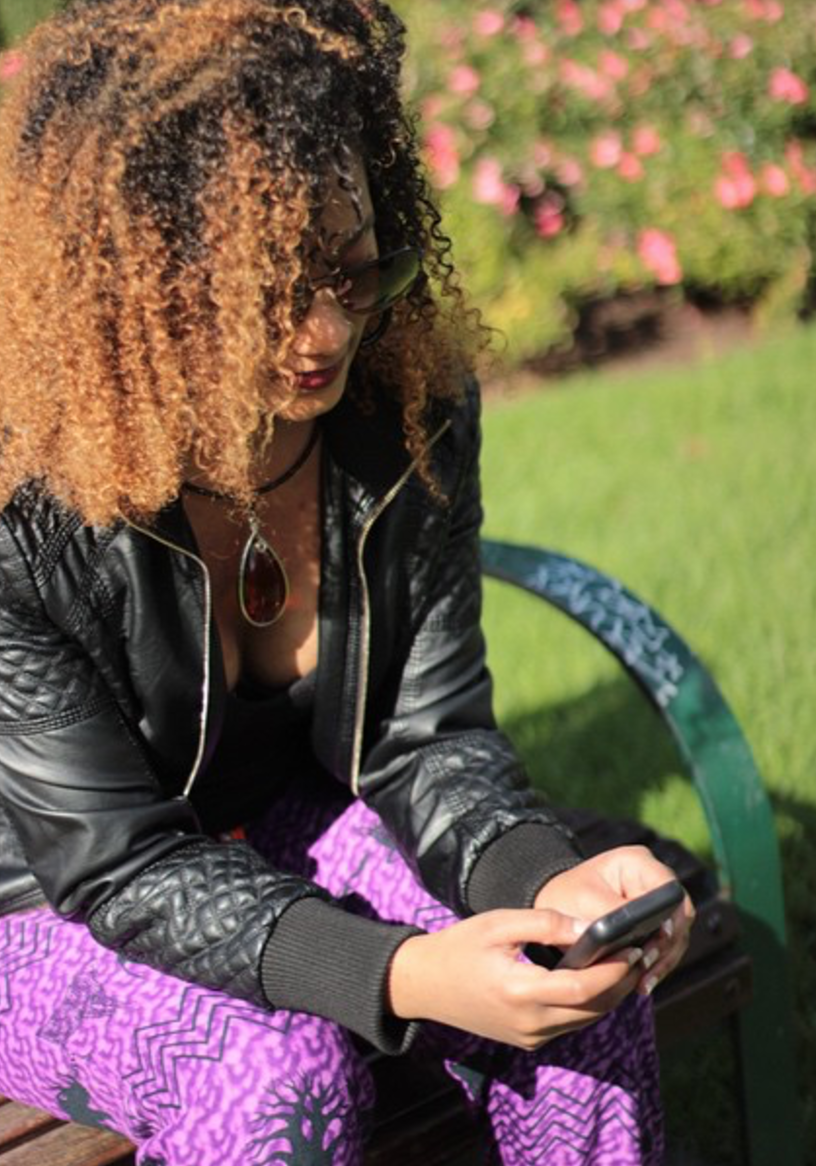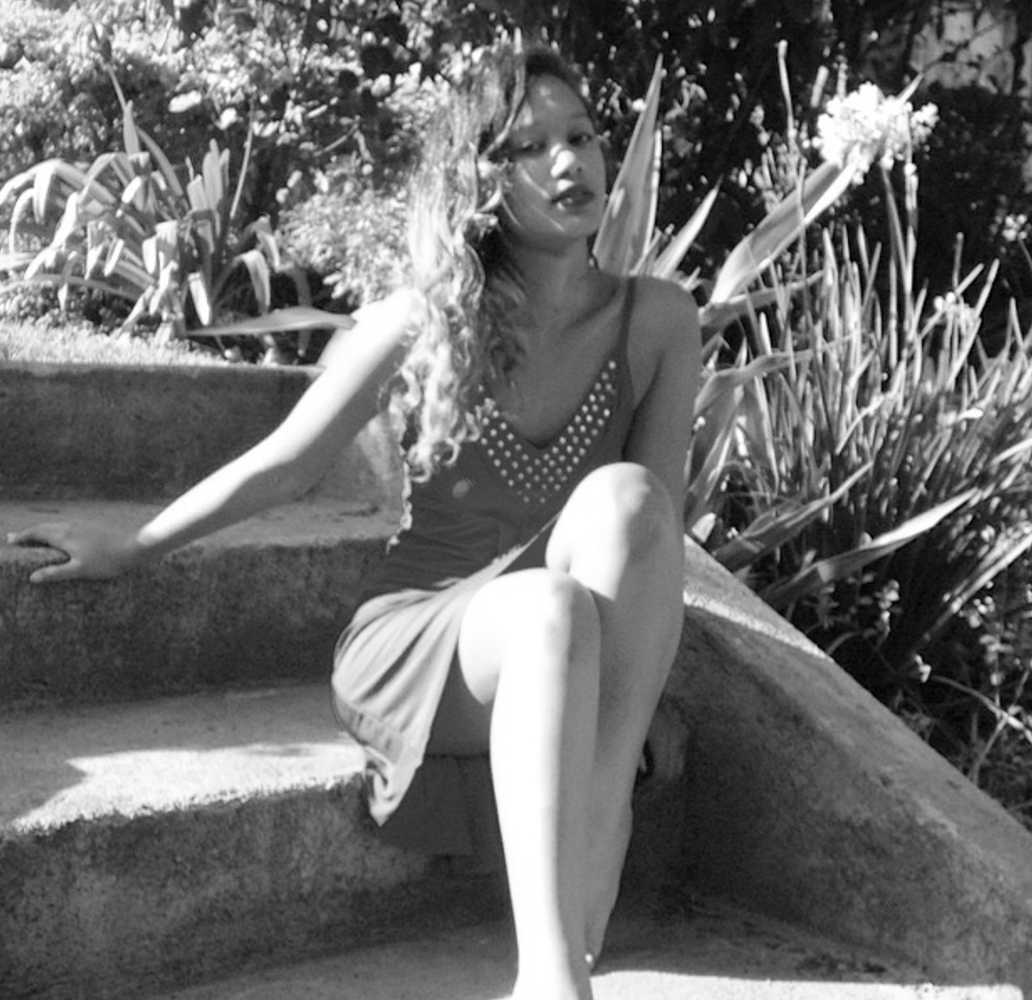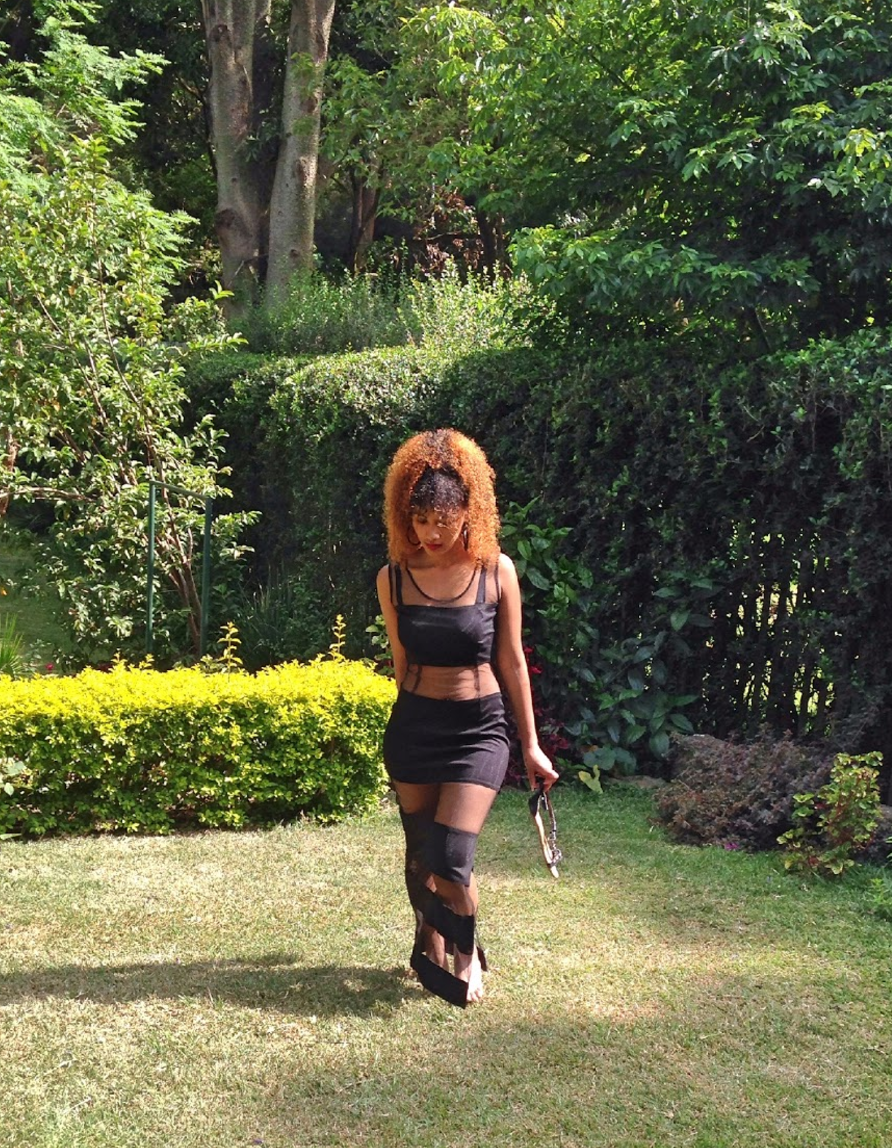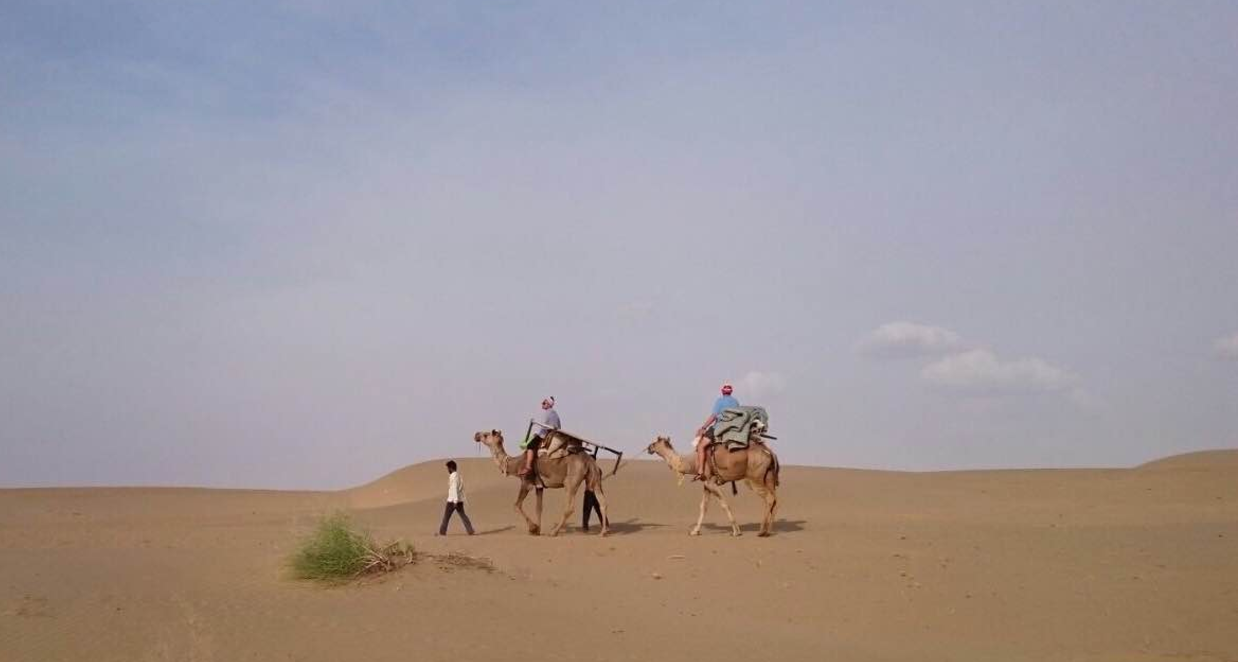Sarah Ratliff, age 49
I am just shy of turning 50 years old (on December 22).
WHAT MIX ARE YOU?
I am Black and Japanese on my mother’s side and German, Dutch and Irish on my father’s.
WHERE DO YOU CURRENTLY LIVE?
Utuado, Puerto Rico.
IS THE COMMUNITY YOU LIVE IN NOW DIVERSE?
Not in the way you probably imagine. Puerto Ricans are like most in the Caribbean, Central and South America. Comprising West African, Taino Indian and Spanish, Puerto Ricans are mixed but unless they’ve mixed with something other than another Puerto Rican, most don’t consider themselves mixed.
WHERE DID YOU GROW UP?
I grew up in New York City in an extremely diverse area. All racial and ethnic makeups you can imagine--both monoracial and multiracial--as well as various religions. It was great! Back then I wasn’t raise to identify as mixed, but I didn’t feel uncomfortable having ambiguous looks. My first boyfriend was half Japanese and half Russian Jewish. I was raised to identify as Black. I hung out with kids who were every race and ethnicity, but I tended to align myself with Blacks and Puerto Ricans.
HOW DID YOUR PARENTS MEET?
Over the phone. It was 1958 and my mother was working for a prestigious company (still pretty shocking they hired a woman, let alone an “other” woman for the position. She was supposed to write an article about W. Eugene Smith (photographer who’d been with Time / Life for a long time). My father represented Smith. They talked for months over the phone and eventually the conversations turned personal. They fell in love and met and my father got the shock of his life when he realized she was Black. They broke up once or twice over it.
WERE THERE ANY SIGNIFICANT OBSTACLES IN THEIR RELATIONSHIP CORRELATED TO YOUR BACKGROUNDS?
The biggest two were the fact that while it was legal in New York State for them to be married, society hadn’t accepted interracial marriage. Imagine this was nearly a decade before the Loving vs. the state of Virginia, the outcome of which overturned anti-miscegenation laws on a federal level. The other was that my father’s father had been a Nazi sympathizer. He disowned my father for marrying my mother. My brothers and I never met him.
HAS YOUR EXTENDED FAMILY ALWAYS BEEN SUPPORTIVE OF YOU BEING MULTIRACIAL?
Ah well that’s an interesting question. I am not sure. My mother was an only child. My father had one brother who had two kids. I am not sure how my cousins felt about my brothers and me while we were growing up. They’re both about a decade older than I am, maybe more. My cousin Karen got married when she was 20 and I was 7, so she’s 13 years older. We were in different worlds because of age. I never knew if she was racist when I was growing up. I doubt it. I really do. Now she is very supportive. Her sister? She was always weird, but I don’t think she was racist. Her evidence is that she married an Argentine man but they’re mostly White, so that’s not an indication. I don’t think she was, but as I said, she was always weird. First she was into Scientology and then she became born again and said homophobic things so I don’t have a relationship with her.
DID YOU CELEBRATE TRADITIONS FROM BOTH SIDES OF YOUR FAMILY?
No, my parents raised us in a Black home but only kind of. It’s complicated but has a lot to do with the fact that my maternal grandfather had been living in the US illegally. So while Japanese would have been the ethnicity with different traditions to celebrate, we didn’t because my mother didn’t grow up with anyone of them. In fact, she didn’t really admit to being Japanese until long after my grandfather died. She feared being deported (my maternal grandmother was born and raised in the US and the Black side of our family goes back to at least the late 1700s).
The notion of being raised with the traditions and cultures of Black vs. White is an interesting one in the US because try as I might, apart from distinguishing between foods and history, I am not sure what the differences are. Privilege doesn’t count as a culture. I’ve thought about this a lot over my lifetime and I am not sure what the differences in culture are. Unless we’re talking about where the respective peoples emanate from--Nigeria, Germany, etc. I am not sure what the differences are.
WERE THERE MULTIPLE LANGUAGES SPOKEN IN YOUR HOUSEHOLD?
My mother spoke German (unrelated to marrying my father), French and Latin. She made sure we were raised to speak French.
WHAT DO YOU ENJOY MOST ABOUT YOUR CULTURAL BACKGROUND?
Because I have never allowed my races and ethnicities to define my tastes, nothing. I love music, food, culture, clothing, etc. from various countries in the world. I was raised to be a Catholic / Episcopalian and I am an atheist today. I can listen to music from everywhere, figure out how to dance to it, etc. I love food from every corner of the globe. I can fit in with every group of people. You could plop me down in the middle of the Congo, Japan, Uraguay, Australia, Egypt, you name it and I could figure out how to adapt.
WHAT ACTIONS DID YOUR PARENTS TAKE TO TEACH YOU ABOUT YOUR DIFFERENT BACKGROUNDS?
To be respectful and open-minded. They also taught us to have healthy skepticism, bordering on paranoia. I question everyone’s motives, but in particular White people’s. I do operate off the assumption that most White people are even a little racist--even if they’re unaware of it. Although the majority aren’t KKK card carrying members, in my 50 years of living, I have seen that most have bias toward PoC in some form or another. Being the complexion I am allows me to see people for who they really are because most White people don’t realize I am not White or that I don’t identify that way. They let their hair down with me because they think I am one of them. Their reactions when they realize I was one of them--you know, those people--well, then it’s my fault they said those things. LOL
DID YOU TALK ABOUT RACE A LOT IN YOUR HOUSEHOLD WHEN YOU WERE GROWING UP?
Constantly just as I do now.
DO YOU IDENTIFY AS MIXED OR SOMETHING ELSE?
Since the summer of 2015 I have been identifying as multiracial. Prior to that, meaning for 48 years I identified as Black. I am still struggling with the Japanese because two reasons: I wasn’t raised that way and because I have found many Japanese people to be racist toward Blacks and other PoC. It wasn’t only my experience with my first boyfriend, but it’s happened enough times in my life that I have seen a pattern. Responses to Ariana Miyamoto’s capturing the Miss Japan Universe are accurate or similar to my experiences with Japanese people.
DOES RACE WEIGH INTO WHO YOU CHOOSE TO DATE?
My first three boyfriends were Japanese and Russian Jewish, Chinese and Puerto Rican. From there I only dated Black men but this is also a little problematic because there’s an elephant in the room in the Black community that emanates from slave days. Because of so much mixing (slaves owners raping slaves) thus producing lighter and lighter complected Blacks, the slave owners gave preferential treatment to them and made the darker ones work in the fields. The field workers were treated like holy hell. I don’t think this resentment was ever truly forgotten.
I have had many Black men fetishize me because of my light complexion while Black women sometimes took up deep resentment before I even opened my mouth. I can’t stand that kind of man, and with the women I have historically been very patient and won most of them over. At some point I stopped dating altogether. I met my husband and he transcends race. He was raised similarly to me in the sense that he doesn’t allow his race and ethnicity (he’s Black) to define his tastes in anything.
WHAT DOES BEING MIXED MEAN TO YOU?
I am still a work in progress. Ask me in ten years. It’s still very new to me. By and large it’s a good thing. I can see things from multiple perspectives but unfortunately I haven’t moved past the judging of White people and their privilege stage yet. I can on an individual basis, but not over all. I am working on that.
DO YOU HAVE A LOT OF FRIENDS WHO ARE MIXED?
I have never really thought about it. In the same way that I don’t allow race and ethnicity to define my tastes, I don’t allow either to define who I seek out as friends. Admittedly since I have been more active in the multiracial community I have made more multiracial friends, but I still don’t allow myself to seek people out based on race. I learn from everyone--even the White people I keep at arm’s length because I am certain they have some kind of bias in them.
ARE THERE ANY COMMENTS YOU ARE REALLY TIRED OF HEARING FROM PEOPLE IN REGARDS TO RACE/CULTURE?
Exotic. If I hear that one again, I may go insane. Generalizations about race are annoying. I also can’t stand it when people (mostly White) tell me there’s only one race--the human race. Yeah, that’s nice but until White people are being used as target practice by the police and always assumed to be stealing, killing, raping or taking drugs, then we can talk about that one race crap.
WHAT IS YOUR DREAM FOR THE FUTURE OF AMERICA IN REGARDS TO RACE?
Because I live outside the US (which by the way I left because of the racism), I think globally not just in terms of the US. I live for a day when race, gender and sexual orientation are non-issues.
ANYTHING ELSE YOU WANT TO SHARE?
What you’re doing with this blog is great. Thank you!
Sarah Ratliff is a corporate America escapee turned eco-organic farmer, writer, activist, serial entrepreneur and the co-author of the book Being Biracial: Where Our Secret Worlds Collide. Much of her writing focuses on racial equality, feminism and politics. Sarah publishes a site called Multiracial Media (partnering with stand up comic and host of the Multiracial Family Man podcast, Alex Barnett). Multiracial Media is a platform of artistic expression for the multiracial community.
For more information about Sarah and/or to see samples of her writing, please visit her website.



